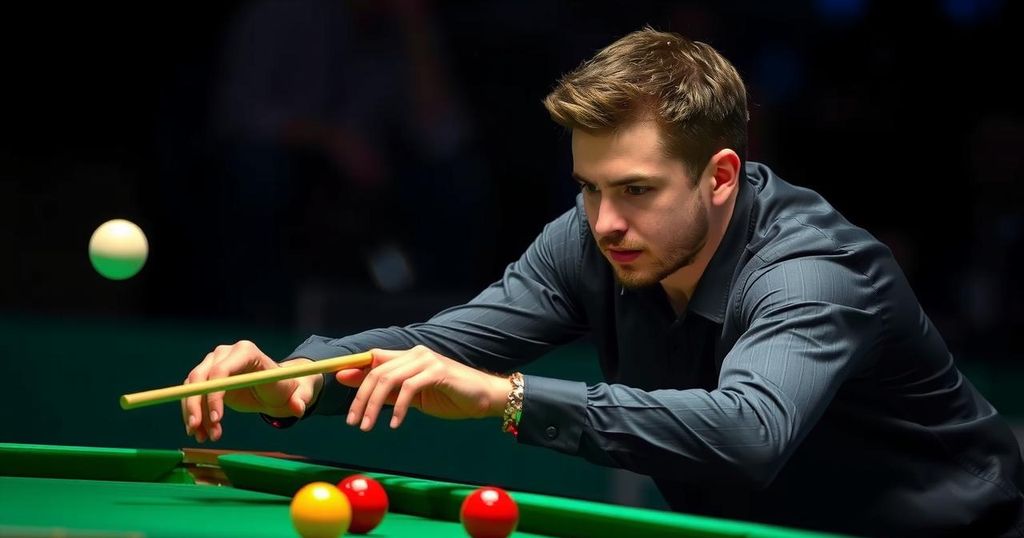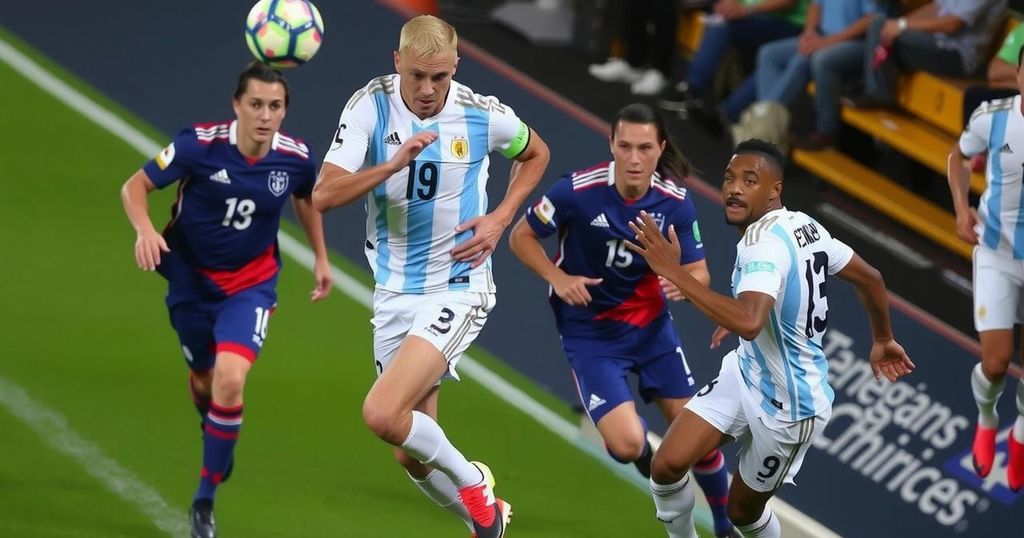Controversy Surrounding Imane Khelif: Gender Identity and Sports Ethics
The controversy surrounding Algerian boxer Imane Khelif has reignited debates over her gender identity following allegations questioning her biological sex. Despite winning gold at the Paris 2024 Olympics and asserting her identity, Khelif has faced public scrutiny and calls for the withdrawal of her medal based on unverified reports. The situation highlights ongoing struggles regarding gender inclusivity in sports and the complexities of identity within competitive frameworks.
The ongoing controversy surrounding Algerian boxer Imane Khelif intensified recently after allegations emerged questioning her gender identity and biological sex. Khelif, who won a gold medal at the Paris 2024 Olympics under the scrutiny of both the public and sports organizations, has faced accusations of being “biologically male.” Despite these claims, Khelif has firmly asserted her identity as a woman, demanding respect and equality within the sport. Following months of discord, a purported medical report surfaced, allegedly indicating that Khelif possesses male characteristics, including XY chromosomes. This report, however, remains unverified and has sparked further debate among feminist advocates and sports officials. “We agree that the medal and all prizes should be withdrawn and given to the best performing female athlete,” stated Kim Jones, co-founder of the Independent Council on Women’s Sport (ICONS), emphasizing the perceived need for accountability in the matter. Khelif’s story is not merely a personal struggle; it signifies broader themes about gender, fairness, and the complexities of sports regulation. Khelif had previously been banned from competing in the IBA sanctioned Women’s World Boxing Championship due to the ongoing allegations, though the International Olympic Committee (IOC) later cleared her to participate. During her Olympic fight, Italian boxer Angela Carini withdrew, asserting that she felt she was competing against a man. Despite massive public outcry and personal attacks on social media, Khelif has emerged as a prominent figure, beloved in Libya. The Olympic landscape continues to grapple with such matters as identities transcend traditional classifications. Amid the controversy, the Algerian Olympic Committee has defended Khelif, stating, “These attacks, often based on unfounded accusations, are aimed at tarnishing the image of an athlete who has brought honour to our nation on the international stage.” As the situation evolves, the IOC has chosen to refrain from commenting during ongoing legal proceedings and investigations regarding the veracity of the claims against Khelif. Exasperated and hurt, Khelif has lodged a complaint against those who have targeted her publicly, a movement acknowledged by the IOC’s spokesperson who indicated that legal actions are indeed active. In a poignant declaration, Khelif’s father emphasized, “My daughter is a girl. She was raised as a girl. She is a strong girl.” This statement encapsulates the layers of familial support amidst an unsettling environment for Khelif, as she navigates the complexities brought forth by the intersection of gender identity and athletics.
The controversy surrounding Imane Khelif stems from her participation in women’s boxing events, where she has faced scrutiny over her gender identity and biological sex. This issue has gained momentum due to societal challenges surrounding gender classification in competitive sports. While Khelif has consistently identified as a woman, reports questioning her physiological status have caused significant turbulence in the athletics community. This situation reflects broader debates about inclusivity and fairness in women’s sports, as organizations struggle to define regulations regarding gender identity and eligibility.
In summary, the case of Imane Khelif has rekindled significant discussions regarding gender identity and integrity in women’s sports. As she battles public scrutiny and legal challenges, the responses from sports organizations, and her community portray the complexities of navigating identity in competitive environments. The outcome of the ongoing investigations and legal proceedings will likely influence future regulations surrounding gender classification in athletics. Khelif’s story remains a touchstone for discussions on equity and justice in sports, emphasizing the need for respect and recognition of all athletes.
Original Source: www.marca.com





Post Comment